Zip Zip Zoom (12/12/2010) Page One

Today was a busy one beginning with church at 10:00 and a visit to a Korean Restaurant so Hannah could get a food fix before traveling north to home in San Jose.
We dropped he off at the airport after lunch and decided to go dancing for a while instead of driving all the way home.
We then went VFR to the Newport Bay Elks Lodge to dance the afternoon away with friends. We had an "open house" at 5:00 in Anaheim so we departed about 4:15 and headed East.
We met up with everybody at Brian and Jan's for some serous kibitzing (a word for Christmas fun!). Life is not only good, it is excellent!
Church

Hannah and Vicky were with us this morning
Dining Korean Style And Airport Drop Off
Did you know? - Korean cuisine originated from ancient agricultural and nomadic traditions in the Korean peninsula and southern Manchuria, and has evolved through a complex interaction of environmental, political, and cultural trends.
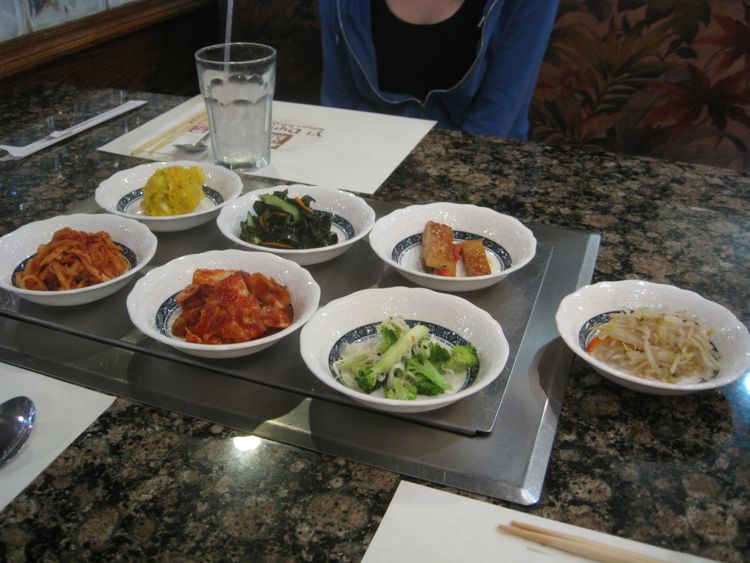
Looking good
Did you know? - Korean cuisine is largely based on rice, noodles, tofu, vegetables, and meats. Traditional Korean meals are noted for the number of side dishes (banchan) that accompany steam-cooked short-grain rice. Kimchi is usually served at every meal. Commonly used ingredients include sesame oil, doenjang (fermented bean paste), soy sauce, salt, garlic, ginger, pepper flakes and gochujang (fermented red chili paste).
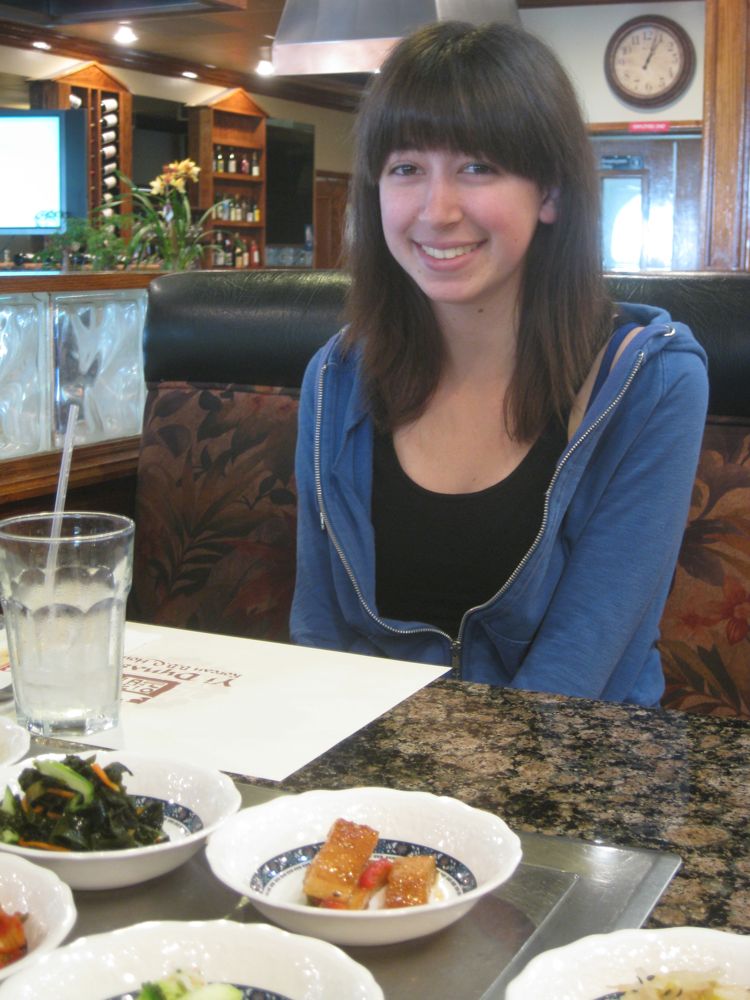
The Mona Lisa smile at work
Dining etiquette in Korea can be traced back to the Confucian philosophies of the Joseon period. Guidebooks such as Sasojeol (士小節, Elementary Etiquette for Scholar Families) written in 1775 by Yi Deokmu (李德懋), comment on the dining etiquette for the period. Suggestions include items such as "when you see a fat cow, goat, pig, or chicken, do not immediately speak of slaughtering, cooking or eating it", "when you are having a meal with others, do not speak of smelly or dirty things, such as boils or diarrhea," "when eating a meal, neither eat so slowly as to appear to be eating against your will nor so fast as if to be taking someone else's food. Do not throw chopsticks on the table. Spoons should not touch plates, making a clashing sound", amongst many other recommendations which emphasized proper table etiquette.
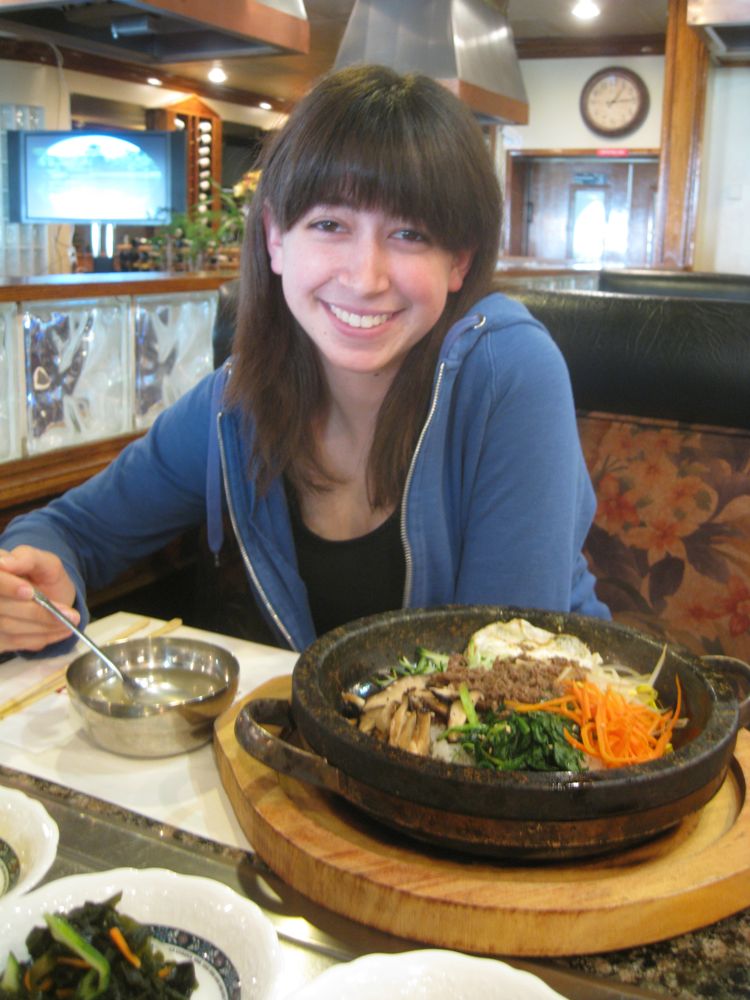
Yum yum!
The eldest male at the table was always served first, commonly served to them in the men's quarters by the women of the house. Women usually dined in a separate portion of the house after the men were served. The eldest men or women always ate before the younger family members. The meal was usually quiet, as conversation was discouraged during meals. In modern times these rules have become lax, as families usually dine together now and use the time to converse. Of the remaining elements of this decorum, one is that the younger members of the table should not pick up their chopsticks or start eating before the elders of the table ~ Wikipedia
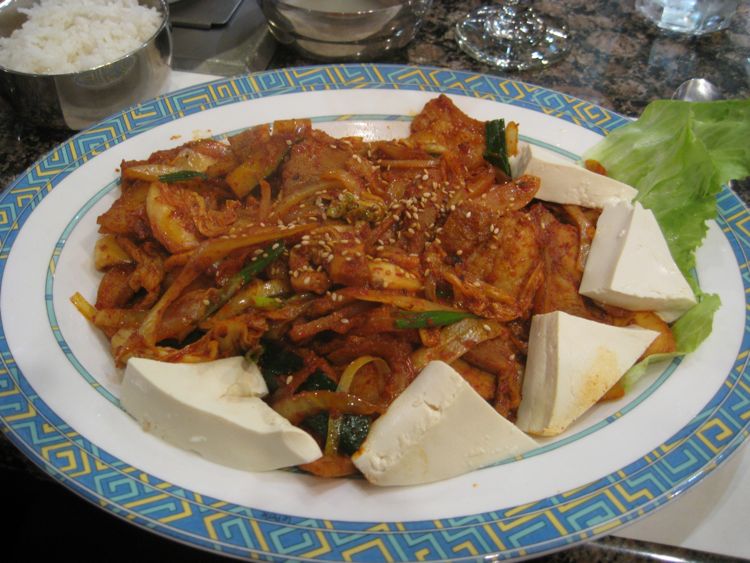
Fried port with lettuce KimChee!
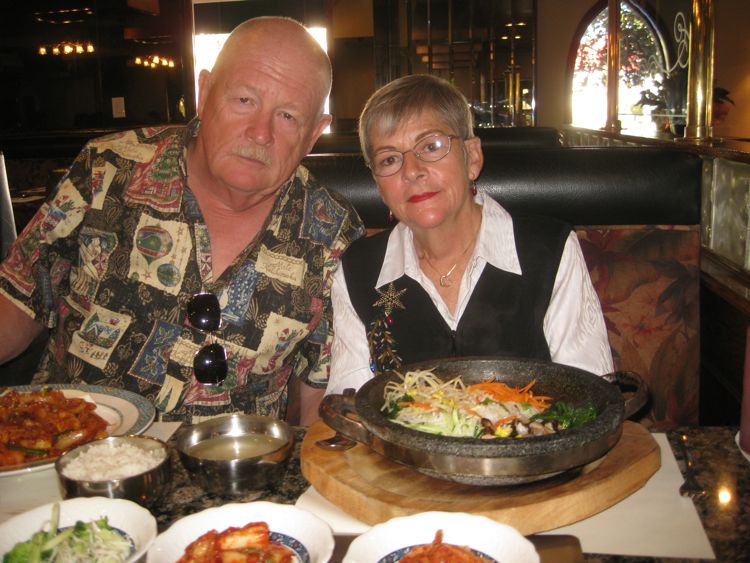
Plenty to fill us up for the entire day
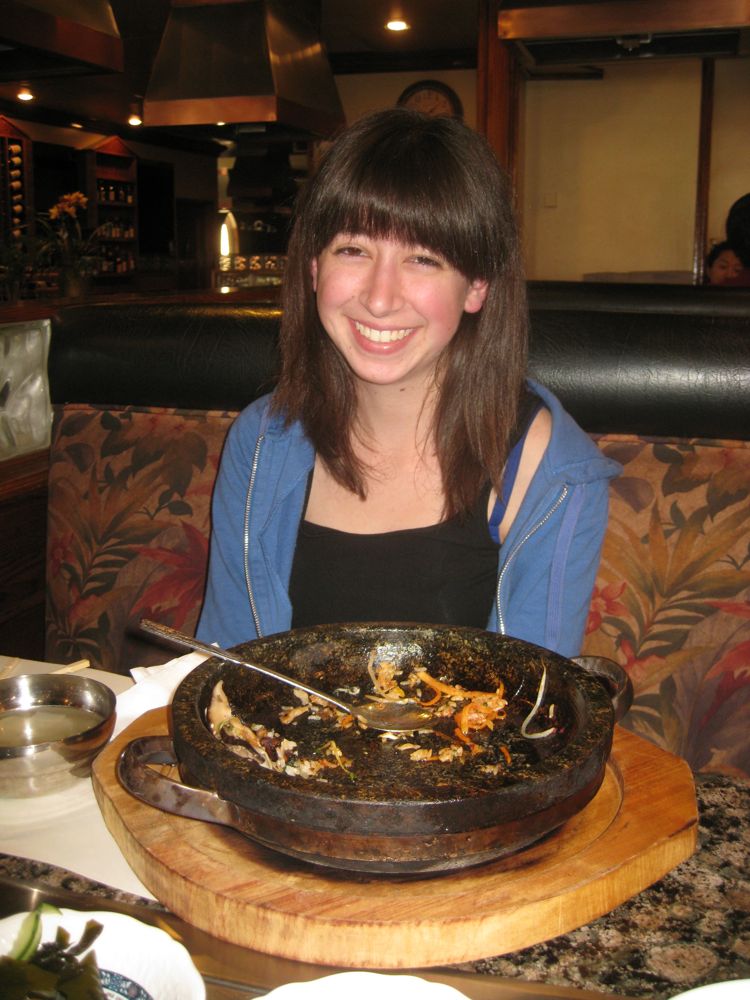
"What happened to your food Hannah?"
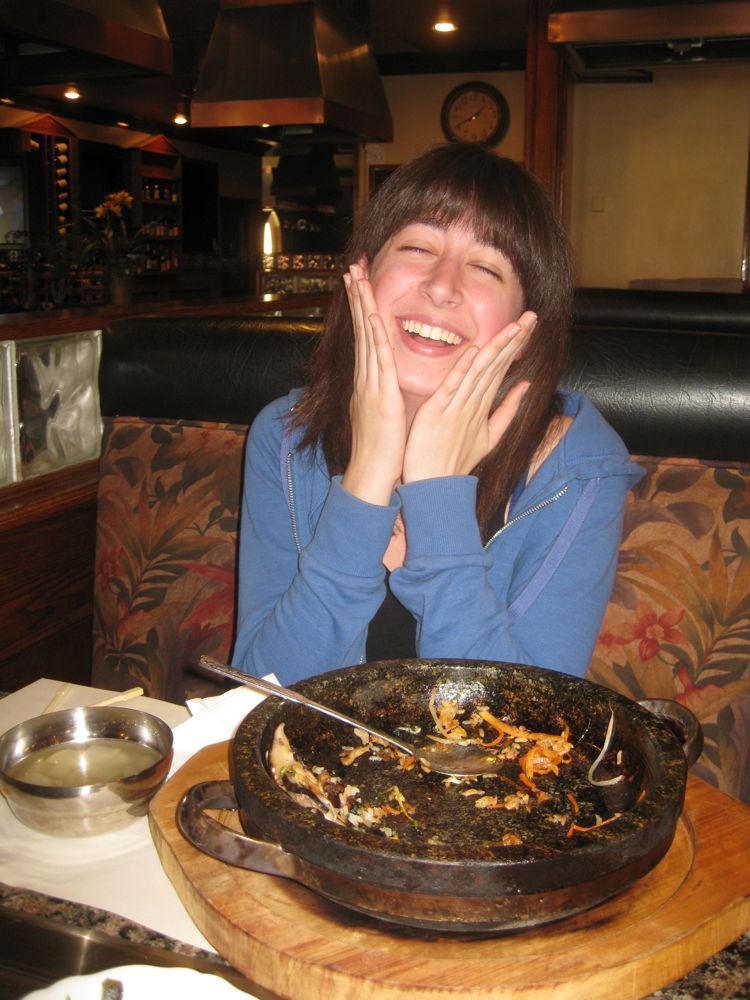
"It just disappeared"
Newport Bay Elks Dancing
We met the Robert's at Newport and we danced for two hours before heading East to the Finch's


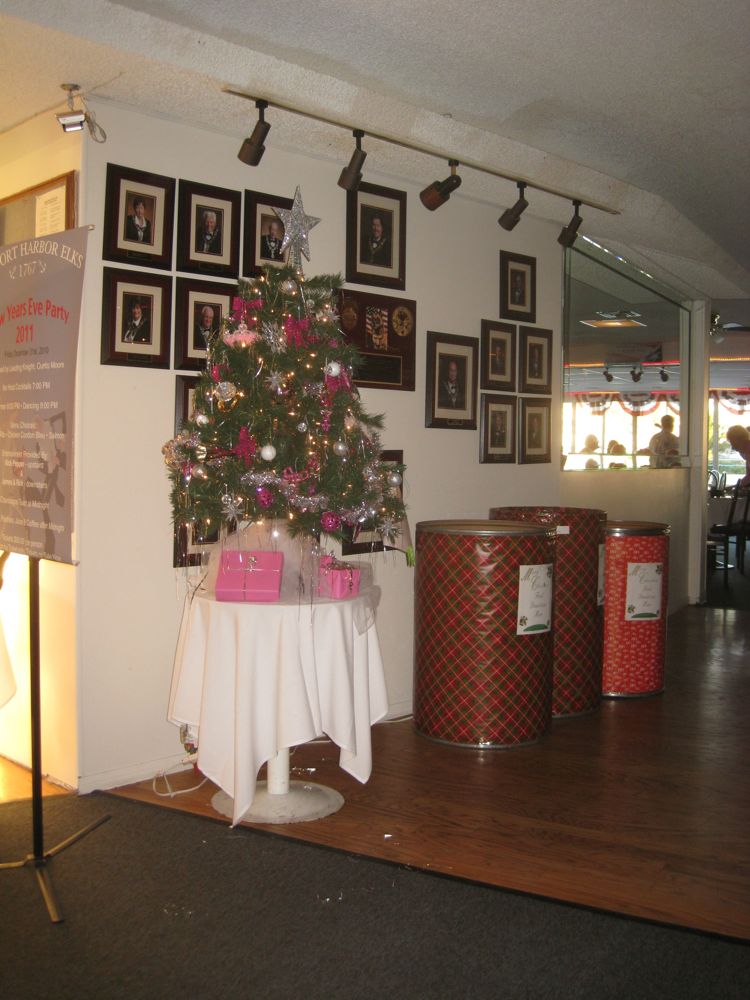

On our way!
